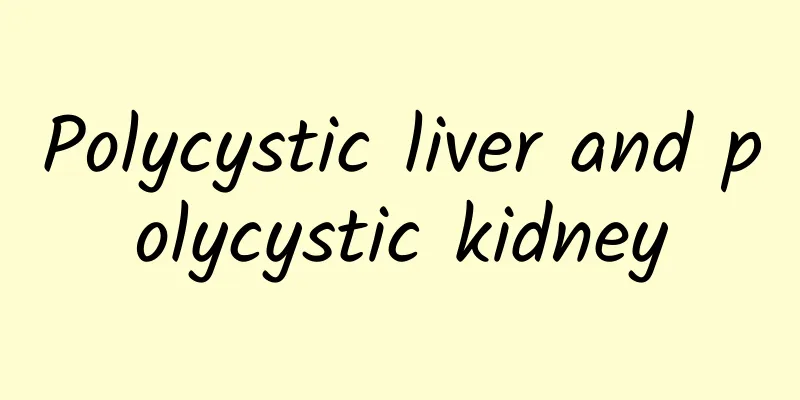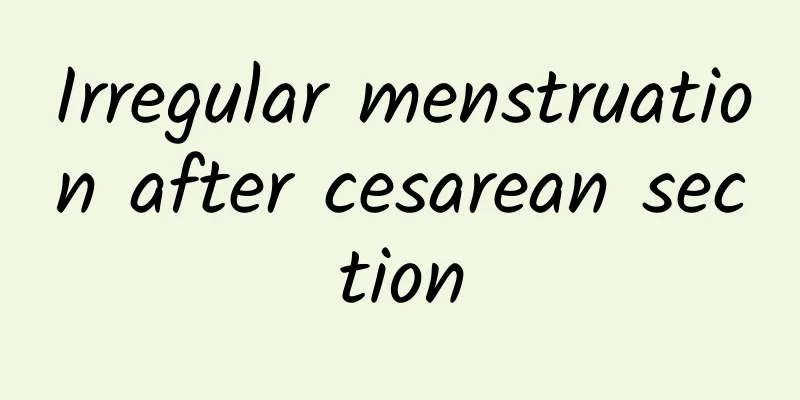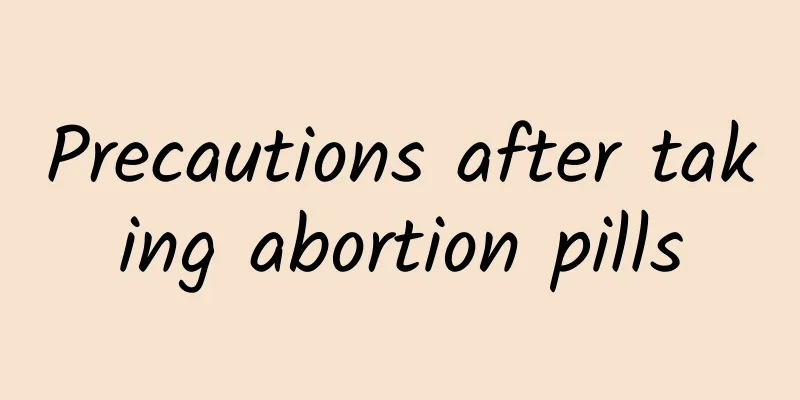Polycystic liver and polycystic kidney

|
Do you know what polycystic liver disease and polycystic kidney disease are? A very common cause of polycystic liver disease and polycystic kidney disease is heredity. Symptoms usually appear after middle age. Polycystic kidney disease usually also occurs when polycystic liver disease occurs. Therefore, once polycystic kidney disease is diagnosed, symptoms of polycystic liver disease will also exist. The treatment of this disease must be cautious. If not treated properly, it will cause great damage to the kidneys and liver. Patients with polycystic liver and polycystic kidney will first have symptoms of discomfort in the digestive tract, loss of appetite, indigestion, and nausea. Patients must take effective treatment methods in time. At the same time, they should pay attention to some issues in diet. Patients must control their blood pressure appropriately. 1. General treatment: In general, after the patient is diagnosed with polycystic liver and polycystic kidney, the first thing to do is to maintain an optimistic attitude. If it has not yet affected the patient's normal life, he or she should be careful not to eat too much salty, spicy and other irritating foods, keep a regular work and rest time, and keep a stable and optimistic mood. If it has affected the patient's normal life, he or she should pay attention to the above points and receive treatment, and the sooner the better. Otherwise, it will be too late if it develops into renal failure and uremia. 2. Treatment with traditional Chinese medicine: Currently, traditional Chinese medicine adopts conservative treatment (taking traditional Chinese medicine) in the treatment of polycystic liver and polycystic kidney, and the effect is very good. Traditional Chinese medicine adopts a holistic concept and syndrome differentiation and treatment, believing that polycystic kidney disease is the result of the combined effects of external and internal factors. Through stepped diversion, the cyst fluid is gradually discharged to achieve the goal of gradually shrinking the cyst. 3. Cyst unroofing and decompression surgery: This surgery reduces the pressure of the cyst on the renal parenchyma, protects most of the remaining renal units from squeezing and further damage, improves renal ischemia, restores some renal function units, and delays the progression of the disease. 4. Treatment of hematuria: When hematuria occurs, in addition to identifying the cause and providing treatment as soon as possible, you should reduce activity or rest in bed. For patients who are already on dialysis or about to undergo dialysis and have recurrent severe and uncontrollable hematuria, transcatheter renal artery embolization may be considered. Dietary considerations for patients with polycystic liver and polycystic kidney disease: 1. Patients with polycystic liver and polycystic kidney should appropriately control their blood pressure. Hypertension is a risk factor for the progression of polycystic kidney disease. 2. Patients with polycystic liver and polycystic kidney should avoid kidney infection, avoid taking baths and holding urine, urinate immediately after urination, and try to avoid urethral catheterization. In case of intracystic infection, seek treatment from a nephrologist. 3. Patients with polycystic liver and polycystic kidney complicated with kidney stones should drink enough water every day to make the urine volume reach 2 liters per day. If it still cannot be discharged, surgery can be considered. 4. Patients with polycystic liver and polycystic kidney should avoid strenuous exercise and wear overalls in their daily life, and do not use car seat belts around the abdomen, so as to prevent the kidneys from being injured by collision or squeezing. 5. Diet is very important for the postnatal care of patients with polycystic liver and polycystic kidney. Generally, you should not eat too much salty and fishy food, and be careful not to be too hungry or too full, too cold or too hot, so as not to hurt your spleen. People with high blood uric acid and high blood pressure should eat a low-purine, low-fat diet, and avoid animal offal and high-fat foods. Patients with late-stage chronic renal failure should pay attention to controlling the intake of protein in food. If the condition of polycystic liver and polycystic kidney is serious, patients need a kidney transplant. They must be treated at the best time to avoid infection. A correct and scientific diet is also very important. Patients with polycystic liver and polycystic kidney generally have high blood pressure. The increase in blood pressure must be controlled in time, and patients must maintain a good mood. |
>>: How to treat trigeminal neuralgia
Recommend
What causes blood in female urine?
We all know that when our body is in a healthy st...
What are the types of TCM syndrome differentiation for bronchitis?
If there is discomfort in any part of the human b...
What to do with gray hair
When people reach a certain age, their hair turns...
What to do if your child has enteritis and vomits? Three ways to help you relieve it
Generally speaking, when parents find that their ...
What to do if the breast hurts after being pressed
Breastfeeding is a painful period for most women,...
What kind of tea can cleanse the intestines and detoxify? What are the teas that can cleanse the intestines and detoxify?
I eat too much meat and fish every day, and my st...
Can I eat nectarines during breastfeeding?
During the breastfeeding period, it is beneficial...
Is it normal for a child to have lymph nodes in the neck?
Many parents accidentally discover that their chi...
Why does the bump on the top of my head hurt?
The pain of a lump on the top of the head is a co...
What is the most effective way to treat colds and flu?
Colds are very common in life, especially when se...
The efficacy and function of seaweed
Nori is a plant that grows on rocks in the sea, s...
What to do if your baby has a cold and runny nose? Traditional Chinese medicine recommends a good remedy
Since babies' bodies are not fully developed ...
Can hypnosis treat depression?
Depression is a very scary disease because it is ...
What causes menstrual back pain in women?
The phenomenon of low back pain during menstruati...
Calf muscle pain
There are a lot of muscles in the thighs and calv...









